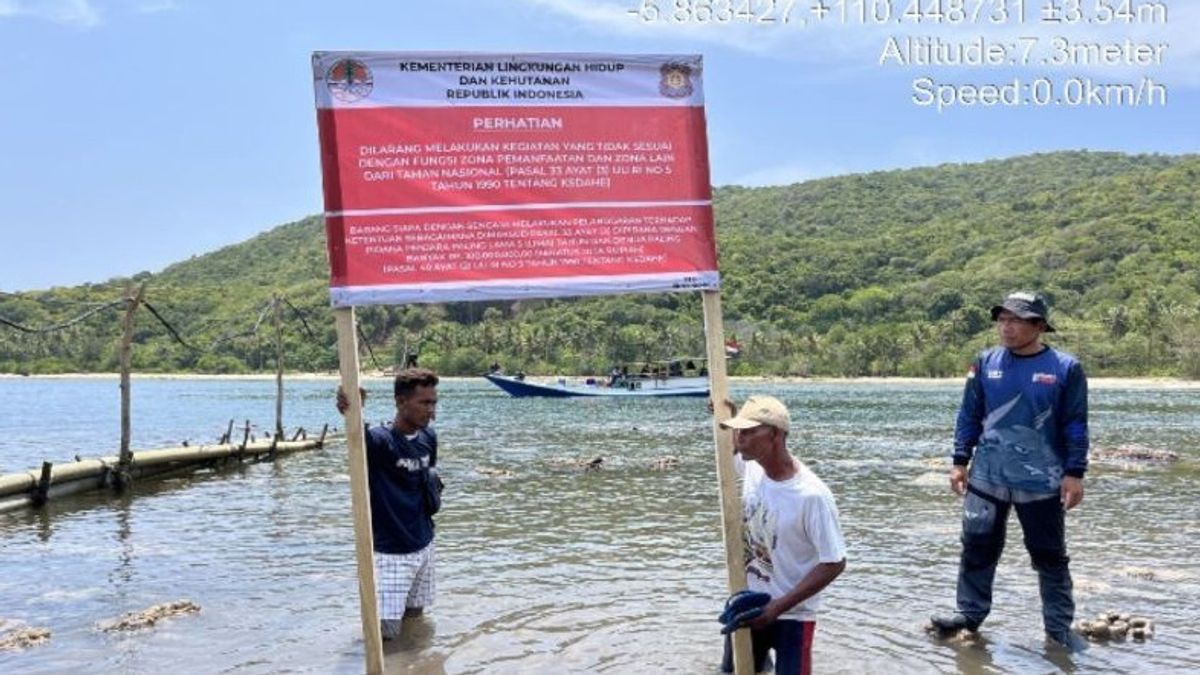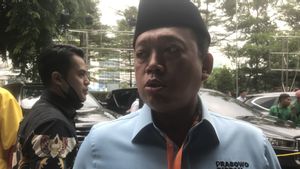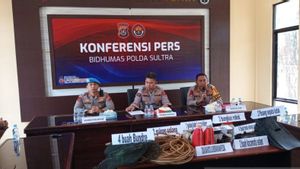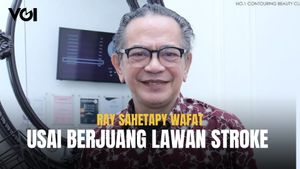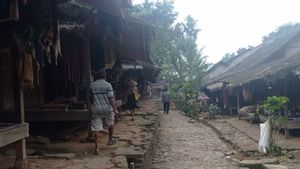JAKARTA - The Ministry of Environment and Forestry (KLHK) has taken firm action against shrimp farmers who caused environmental damage to the Karimunjawa National Park area in Jepara, Central Java.
Director General of Law Enforcement of the Ministry of Environment and Forestry, Rasio Ridho Sani, said that shrimp pond activities have proven to have damaged the ecosystem, harming the community and state.
"The handling of the case is in order to implement multidoor crimes, so that the perpetrators have a maximum sentence and there is a deterrent effect. Enforcement must be a lesson for other perpetrators," he said as quoted by ANTARA, Monday, November 27.
After the joint operation of controlling the illegal shrimp pond inlet pipe at Karimunjawa National Park, the Ministry of Environment and Forestry issued an Investigation Order and a notification letter for the start of the investigation on behalf of four pond business actors, namely MSD (47 years), S (47 years), SL (50 years), and TS (43 years). ).
The KLHK team has carried out control by cutting 19 units of inlet pipes belonging to business actors located in Karimunjawa National Park.
Rasio said the four perpetrators insisted on rejecting the control efforts and continued their pond efforts, so that the last attempt was made in the form of law enforcement against the four perpetrators.
Based on the results of the KLHK investigation case with the Central Java Police PPNS Korwas, the four perpetrators were suspected of carrying out activities that were not in accordance with the function of the utilization zone and other zones from national parks, forest parks, and natural tourism parks.
They face a minimum prison sentence of three years and a maximum of 10 years. The fine is at least Rp. 3 billion and a maximum of Rp. 10 billion.
From the results of the collection of Information/Investigation Materials carried out by KLHK investigators, it was found that almost all of the shrimp pond business actors did not have a permit for environmental approval, the waste generated from shrimp pond cultivation was immediately wasted/flowed to the environment without processing through the standard IPAL.
SEE ALSO:
This activity caused pollution and environmental damage, installation of marine water extraction inlet pipes through the forest zone of Karimunjawa National Park and damaged coral reefs.
Installation of sea water extraction inlet pipes for shrimp pond activities does not have an Approval for the Compliance of Marine Spatial Utilization Activities (PKKPRL).
Acting Director of Prevention and Security of the Ministry of Environment and Forestry, Sustyo Iriyono, emphasized that the joint operation of controlling shrimp pond inlet pipes is a form of synergy and collaboration between the Ministry of Environment and Forestry, the Coordinating Ministry for Maritime Affairs and Fisheries, the Central Java Regional Police, the Jepara Military District Commander, and the Jepara Regency Government to protect the Karimunjawa National Park Area from environmental damage and pollution.
The Ministry of Environment and Forestry has always prioritized persuasive, pre-emptive, and preventive efforts in securing the Karimunjawa National Park area.
"We will apply enforcement and justice actions if illegal activities in Karimunjawa National Park continue to occur so that it becomes a deterrent effect for the perpetrators," said Sustyo.
The English, Chinese, Japanese, Arabic, and French versions are automatically generated by the AI. So there may still be inaccuracies in translating, please always see Indonesian as our main language. (system supported by DigitalSiber.id)
